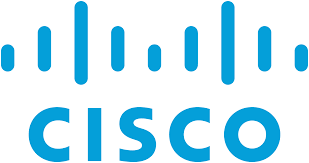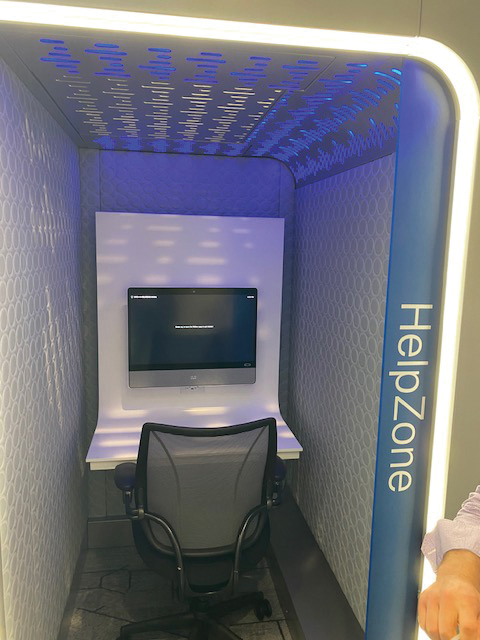This year’s Higher Education Executive Networking event not only allowed community members and leaders to network with each other, but gave Edge and historical members from New Jersey a chance to hear how they can better support the individual missions of each organization. Edge also formed new connections with attendees from New York and was able to speak in person to a new Edge member, the Metropolitan College of New York (MCNY). As a user of EdgeNet, MCNY shared positive feedback regarding the network and having connectivity in their area.


Leaders from institutions throughout New York City and beyond joined together on June 20, 2024 to enjoy refreshments and community building at Edge’s popular Higher Education Executive Networking Reception. Partnering with Cisco and CBTS to host this year’s event, Edge welcomed attendees to engage in consortium networking and experience new technologies, while giving them an opportunity to share their top priorities, challenges, and aspirations. Cisco gave participants a tour of their state-of-the-art 1PENN location in NYC and provided an in-person look at the advantages of incorporating advanced technologies into modern building systems.
Creating Innovative Hybrid Work Environments
With a goal of reimagining in-office facilities, Cisco created a Smart Building solution that supports a hybrid work environment, streamlines building management, and reduces operational costs. With technology incorporated into the design instead of an add-on, the workspace promotes collaboration and an enhanced user experience, while catering to diverse work and learning styles. Employees can check meeting room availability, adjust room temperature, lights, and blinds, and reduce outside noise with ambient sound.
Created by Cisco, the software-based system for room control allows users to adapt, monitor, and maintain conference rooms and classrooms to better fit their needs. IoT sensors, AI-driven analytics, and virtual collaboration tools all allow seamless transitions between in-person and remote interactions and showcase what is possible when creating innovative hybrid work and learning environments. For member institutions looking to enhance digital learning and collaboration, Cisco’s hybrid learning and collaboration technology is available through EdgeMarket.
Forming New Connections
This year’s Higher Education Executive Networking event not only allowed community members and leaders to network with each other, but gave Edge and historical members from New Jersey a chance to hear how they can better support the individual missions of each organization. Edge also formed new connections with attendees from New York and was able to speak in person to a new Edge member, the Metropolitan College of New York (MCNY). As a user of EdgeNet, MCNY shared positive feedback regarding the network and having connectivity in their area.
The network node addition occurred in 2019, as Edge continued its regional network expansion. The high performance networking node was established at the historic 32 Avenue of the Americas (32 AoA) facility in New York City, a worldwide hub for high performance optical fiber networking. This location allows Edge to deliver a higher quality of service to a wider regional member base and to continue advancing research and education networking capabilities for member institutions.
As the need for digital learning and collaboration solutions continues to grow within higher education, Edge plans to organize more opportunities for thought leaders to see firsthand how user-centric technology can be integrated successfully into workspaces and classrooms. If you are interested in learning more about future executive networking events and tours, please contact Michelle Ferraro at michelle.ferraro@njedge.net.

About Cisco’s PENN 1 Facility
Cisco’s PENN 1 office located in Midtown Manhattan, New York City is one of Cisco’s newly reimagined office spaces designed to provide the ultimate hybrid work experience for employees and visitors while also leveraging smart building technology to help reach Cisco’s sustainability goals and provide real estate and facilities teams the operational insights needed to understand how the space is being used. The PENN 1 office was the first of its kind at Cisco and as such, was a learning experience.
The PENN 1 office was initially created as a proof of concept, and as such, many of the technologies used had no pre-existing IT standards for their deployment. Additionally, there was a desire to reimagine the purpose of the office which required rethinking how space was allocated. As a result, a virtual team was created of subject matter experts from Cisco’s IT, sales, and workplace resources organizations, who were responsible for designing and deploying the office and then taking the learnings to create new IT standards that could be leveraged for future offices. This effort took place through 2021 and early 2022, so design decisions made here should be viewed through the lens of the state of the art at that time. Additionally, supply chain issues influenced some of the product choice decisions. The document will point out alternate product selections that have been used in newer offices that have been implemented since the opening of PENN 1.


